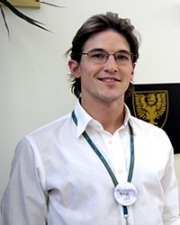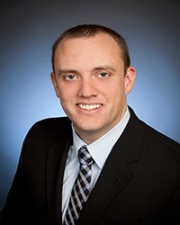Alumni Profile
~ By: Jocelyn Adams, Communications & Special Projects Assistant
Transitioning from a student to a practicing physiotherapist can be an exciting yet intimidating milestone. We recently chatted with physiotherapy alumni, Stephen Richey and Mark MacKenzie, who shared their advice to students and new grads.
These vibrant alumni first sparked the interest of students and faculty during an engaging presentation at PT Matters on April 2, 2014. With a fresh perspective and insight to the practice, Stephen and Mark sat down for a Q & A session to share their journey from student to working physiotherapist.
Mark MacKenzie, PT

"There's not going to be a black and white, yes/no answer - so appreciate that while much of our profession is a science, there truly is an art to physiotherapy."
Education
- BSc (StFX)
- MScPT, (2009), (Dalhousie)
Stephen Richey, PT

"You need to think critically about what it is you are doing and how it applies to treatment. I think in life it makes you question, what's the research behind it?"
Education
- BSc (Acadia)
- MScPT, (2009), (Dalhousie)
